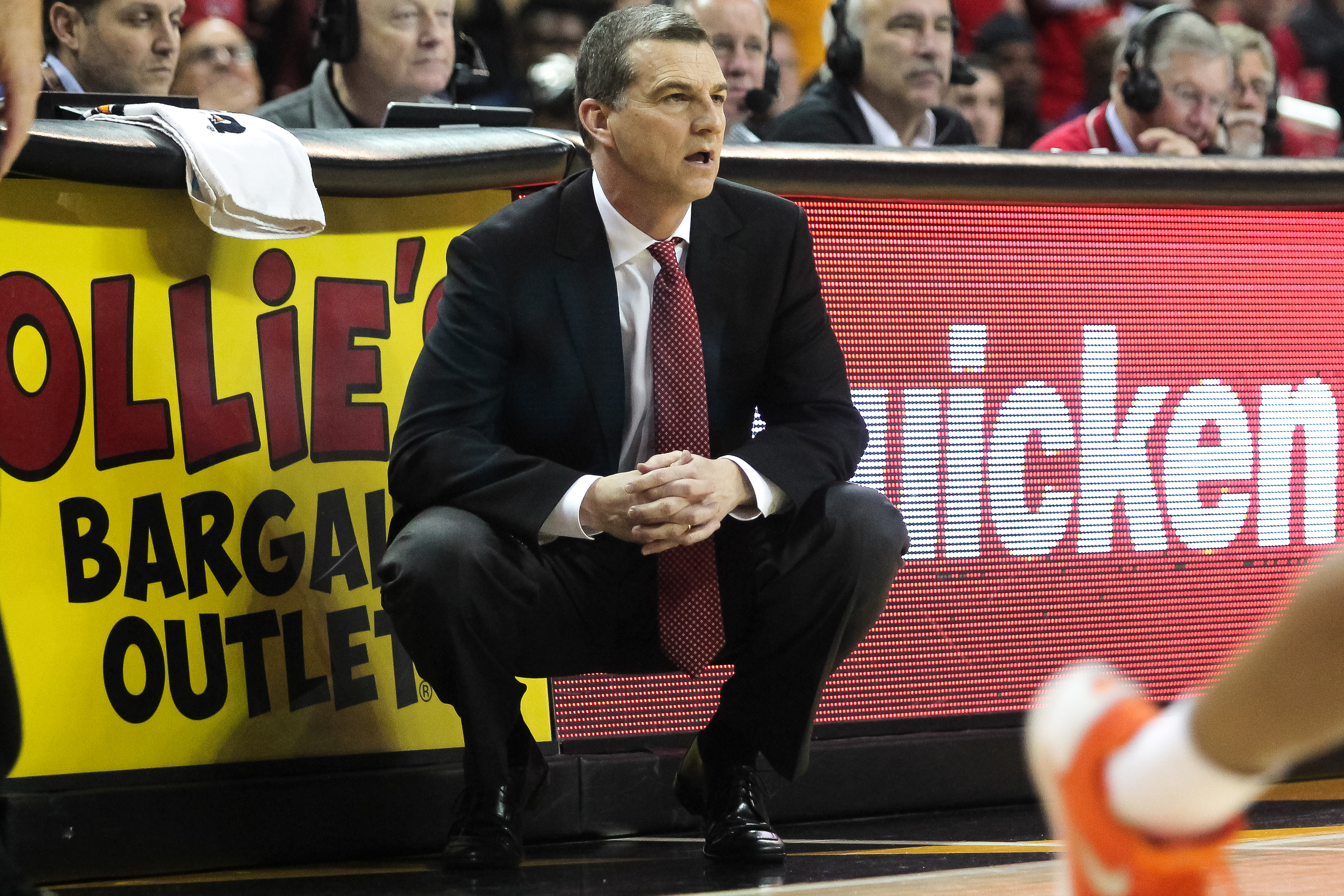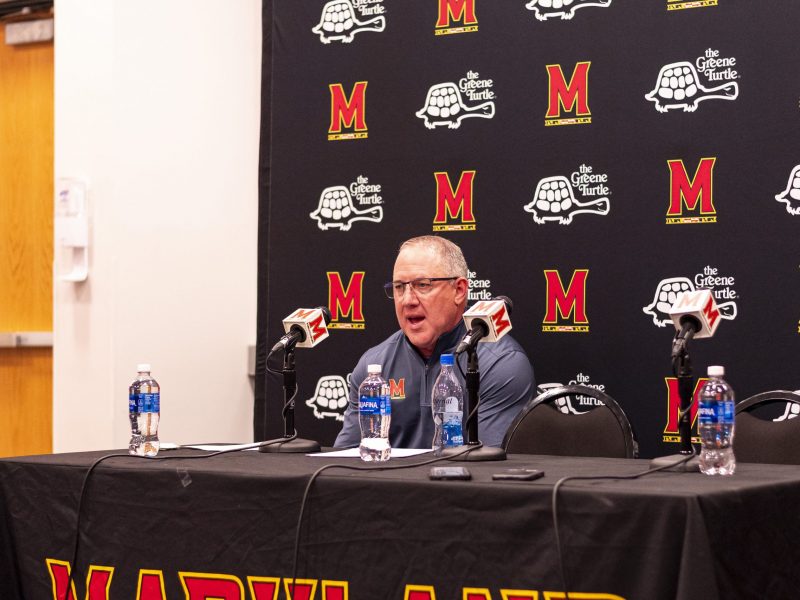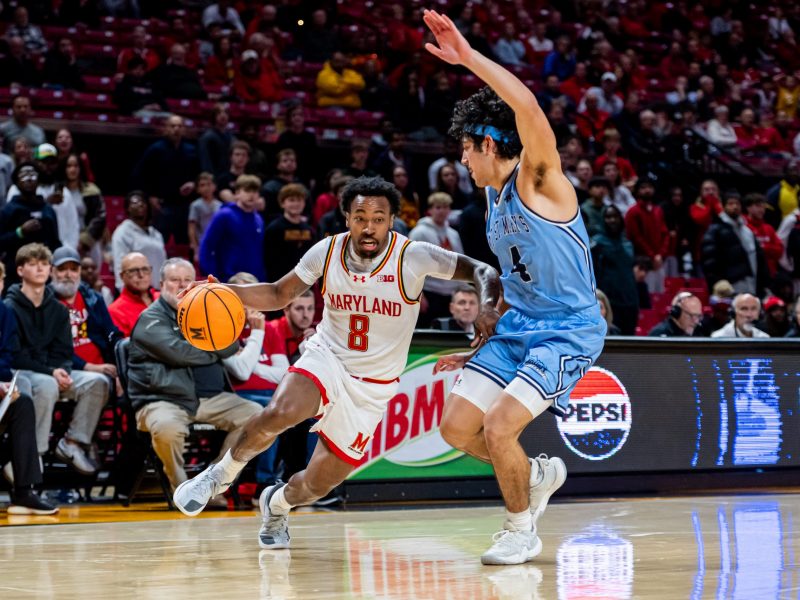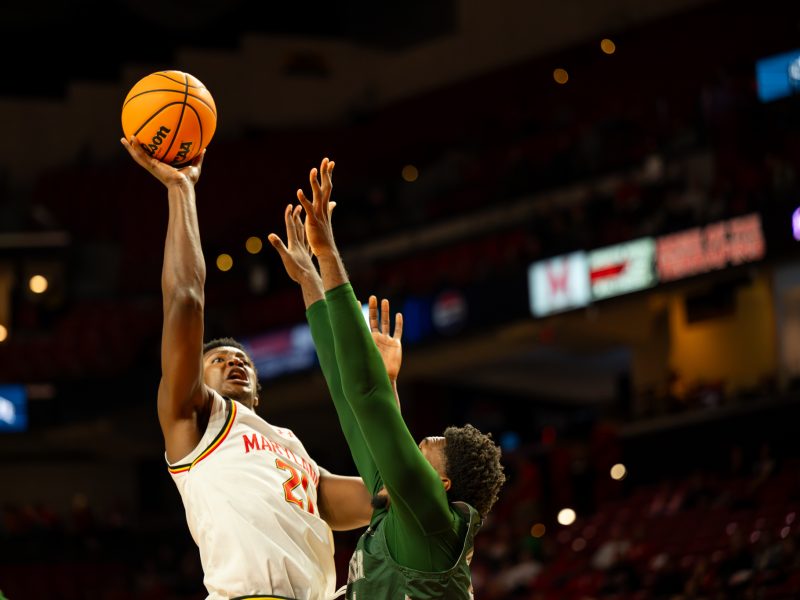It must not be easy to be Mark Turgeon.
The Terrapins men’s basketball coach, after all, shares a court with a women’s basketball team that has qualified for two consecutive Final Fours, and plays across the street from the two-time reigning women’s lacrosse national champions.
This university’s men’s soccer and field hockey teams have turned winning conference championships into yearly traditions, and baseball has made consecutive runs to the Super Regionals.
Yes, Turgeon’s squad outdraws all of those teams — by a lot — but in the hypercompetitive world of college sports in which one’s worth is directly tied to winning championships, Turgeon has come up short.
I’m not saying this is a valid way of looking at things, nor am I even saying I agree with it. But that’s how it is. Like center Diamond Stone (probably), one-and-done players who populate NCAA campuses aren’t there primarily to immerse themselves in cell biology or contribute to fraternity-sponsored philanthropy.
They’re there to hoist trophies and cut down nets.
This weekend, the No. 3-seed Terps could join the ranks of this campus’s royalty with a Big Ten championship, their first conference tournament crown since 2004. Not that the team has given us any reason to think that’s a likely scenario.
In recent weeks, they’ve turned the ball over, played poor transition defense and endured cold shooting stretches.
The story of the Terps’ season is well-documented: a mega-talented collective of stars whose peak wasn’t supposed to come until they arrived in Houston for the Final Four.
But as of late, it’s seemed as if the high point of the Terps’ season might have come in November or December or January, with the remainder of the campaign resembling a dramatic tragedy, a confounding sequence rife with painful defeat.
The beauty of sports, though, is that they aren’t scripted. You get to write your own ending.
The Terps will pen a new chapter this weekend, starting with a quarterfinal bout Friday. They’ll play the winner of No. 11-seed Nebraska and No. 6-seed Wisconsin, the team that handed them their first home loss in more than 14 months on Feb. 13.
Their six other losses came on the road, a fact optimistic fans point to as reason to believe the Terps will fare better in neutral-site postseason games.
It sounds good on paper, but isn’t necessarily true. Teams that can win on the road tend to fare better in the high-stress atmosphere of the postseason. The 2014-15 Badgers, who won the conference tournament title before reaching the NCAA final, lost just two road games all regular season.
Why exactly haven’t the Terps won on the road?
Turgeon has given the boring answer: It’s tough to win away from home in college basketball.
But that response shouldn’t satisfy a fan base that expected its team to run through the regular season and earn a high seed in the 68-team field.
Instead, the regular season ended with an 18-point loss to conference champion Indiana.
Things haven’t been pretty for the Terps lately — they lost four of their last six and took a bumpy tumble down the national rankings.
In a month from now, we could be looking at that stretch as an unpleasant yet distant memory on the road to an NCAA championship. The Terps could surprise everyone, win the conference tournament and live up to their potential.
Or we could be looking at it as the beginning of the end.



